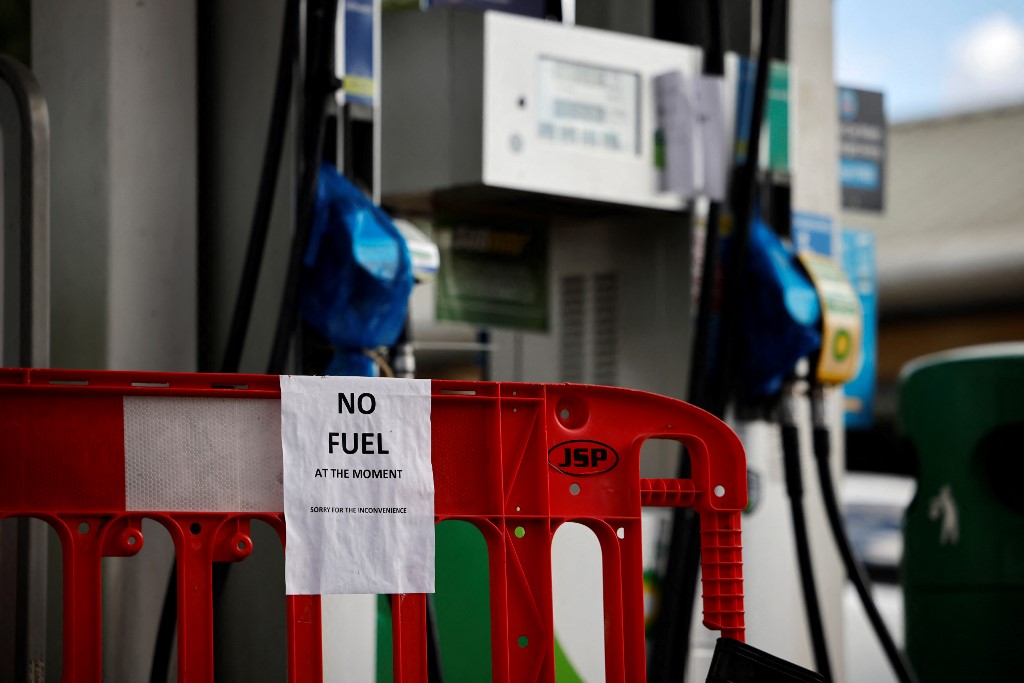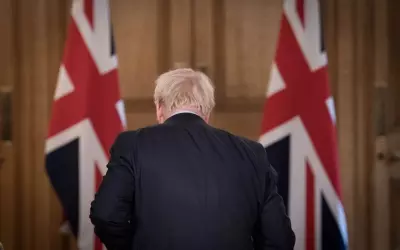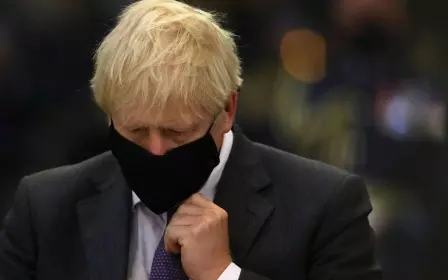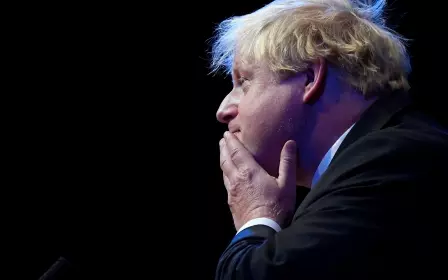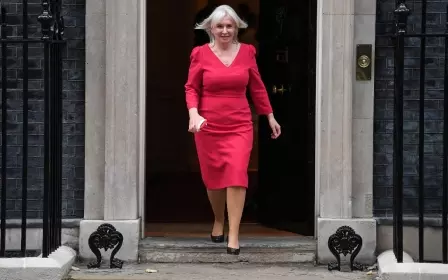As Tories fete Boris Johnson, a social catastrophe looms
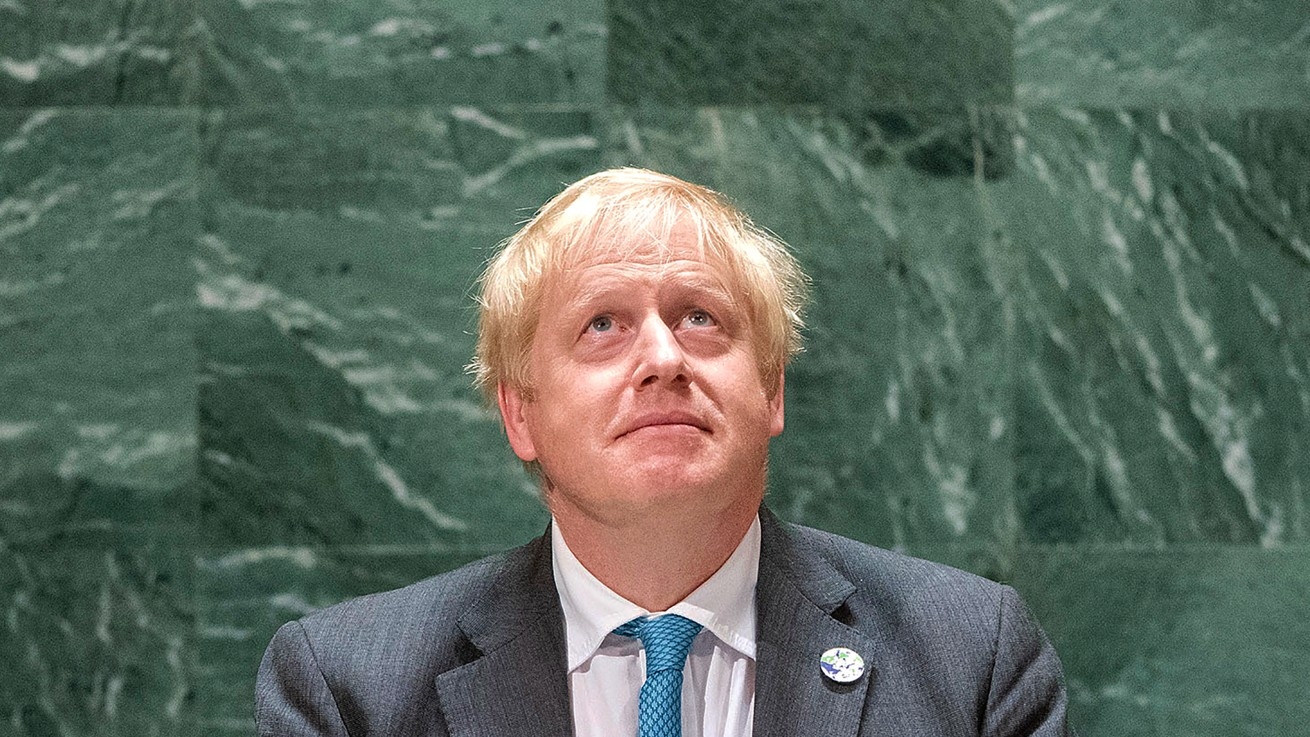
One of the most striking features of contemporary politics is the scale of the gap that has opened up between elites and the people.
Let’s look at Prime Minister Boris Johnson’s Britain on the eve of next week’s Tory party conference in Manchester. We are talking two parallel realities: on the one hand, the euphoric story of political triumph and economic success. On the other, economic degradation and looming social catastrophe.
Can the euphoric political/media bubble on display in central Manchester coexist with the grim realities of declining living standards and desperation outside?
The first reality can be found inside the heavily guarded conference centre by Manchester’s famous Midland hotel. Britain’s governing elite were already starting to gather there on Friday: Johnson, his freshly reshuffled cabinet, MPs still pinching themselves in disbelief after the 2019 election triumph, Tory donors on the lookout for contracts - all aided and abetted by a courtier class of client journalists and newspaper editors on a mission to pump out the Conservative message.
Remember that next week’s Tory conference is not just a public affair. The British governing elite will back slap and strike deals behind the scenes at parties, restaurants and private dinners.
As for Johnson, he is guaranteed to receive a hero’s welcome when he steps onto the stage to deliver his leader's speech.
Remember that this is the first Tory conference to meet physically (as opposed to online) since Johnson’s election victory in December 2019. There is a great deal of celebration to do, and the festivities will stretch well into the small hours - all the more so with Labour leader Keir Starmer well behind in the polls, and obsessed with stoking divisions inside his own party.
The second reality
Now let’s turn to the second reality, the one increasingly experienced by the majority of the British people. There are long queues outside petrol stations as Britain faces a fuel crisis hauntingly similar to the 1970s. Many petrol stations, including my local station, are actually closed.
Crops are rotting in the fields. Supermarket shelves are empty. Covid-19 is back on the rise, with deaths creeping steadily up. There are growing fears for the British economy, with inflation on the rise and public finances out of control. There’s talk of a winter of discontent, comparable to the chaotic winter of 1978-79, which created the conditions for Margaret Thatcher’s election victory the following spring.
Can the euphoric political/media bubble on display in central Manchester coexist with the grim realities of declining living standards and desperation outside? It is important to understand that so far, the Johnson government has been protected against the consequences of this pileup of economic disasters.
For all its horror, the coronavirus pandemic did the Johnson government a monumental political favour. It concealed the economic consequences of Brexit. For the last 18 months, it has been impossible to tell whether the pandemic or Brexit was responsible for Britain’s mounting problems.
Now, they are becoming obvious for all to see. There are no Eastern European workers to pick the crops; European lorry drivers are unavailable now that Britain has left the single market. On Thursday, Chancellor Rishi Sunak brought to an end the furlough scheme that protected workers against lost income because of the pandemic.
On Wednesday - by coincidence, the date Johnson is expected to deliver his conference speech - universal credit will be slashed by £20 ($27) a head, the biggest cut in the history of the welfare state. The move will plunge many people into poverty and desperation.
Media complicity
Crucially, Johnson has so far been able to rely heavily on the protection of the mass media. Britain’s big right-wing newspaper groups all backed Brexit, and they all supported Johnson when he ran for Tory leader.
They need him to succeed. If he fails, they will look stupid and lose credibility, and their readers will lose faith. Meanwhile, the supposedly impartial BBC, intimidated by government bullying, has failed to stand up to the government.
So, the mass media have largely averted their gaze from Johnson’s problems - and when they have been forced to pay attention, they have largely absolved the prime minister of blame. Anyone who doubts this analysis should contemplate the kind of media coverage that Jeremy Corbyn would have been receiving over the past few weeks if he had won the last general election.
It would have been gory. He would have been personally blasted for each and every disaster. He would have been mocked and humiliated in brutal front-page denunciations. There would be a campaign for him to quit.
Johnson, by contrast, is held up as a hero who successfully survived a brush with death after contracting Covid-19 to successfully lead Britain out of Europe and through the coronavirus crisis. Johnson’s political triumph is indeed remarkable. This weekend, he dominates the Conservative Party, having won an 80-seat majority in the House of Commons - and there will much talk of a snap general election and 10 more years of a Johnson premiership.
But this euphoria is based on lies, made possible only thanks to the complicity of a tainted mass media. Next week will be Johnson’s greatest moment of political triumph as Tory leader. He should enjoy it. Outside the Conservative Party bubble, life is getting harder, and the triumphalist media/political establishment cannot ignore this desperation for much longer.
The views expressed in this article belong to the author and do not necessarily reflect the editorial policy of Middle East Eye.
Middle East Eye propose une couverture et une analyse indépendantes et incomparables du Moyen-Orient, de l’Afrique du Nord et d’autres régions du monde. Pour en savoir plus sur la reprise de ce contenu et les frais qui s’appliquent, veuillez remplir ce formulaire [en anglais]. Pour en savoir plus sur MEE, cliquez ici [en anglais].



